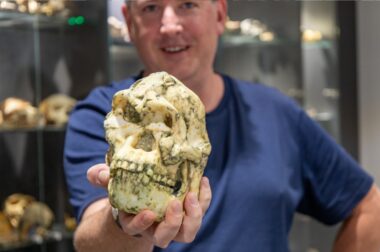The Center for Disease Analysis (CDA) Foundation is pleased to announce receipt of a $7 million grant from the John C. Martin Foundation to sustain and expand the Polaris Observatory until the end of 2030.
The Polaris Observatory serves as the definitive source for global data on hepatitis B and C virus (HBV and HCV) burden, providing insights into the prevalence and distribution of these viruses across countries, regions, and globally. It also assists national governments and international organizations in monitoring progress toward the World Health Organization’s (WHO) 2030 elimination targets for HBV and HCV. Annually, the Observatory collaborates with over 1,000 national experts in 120 countries, updating forecasts for each country. Additionally, it offers pro bono support to national governments, assisting them in developing and implementing elimination programs and strategies to fund for their initiatives.
“We are deeply grateful for the John C. Martin Foundation’s unwavering support,” expressed Homie Razavi, Managing Director of the CDA Foundation. “Their initial funding in 2015 catalyzed the establishment of the Polaris Observatory, and their continuous support has enabled us to sustain our work. The Observatory’s programs are supported by a dedicated team of epidemiologists, mathematical modelers, programmers, and decision analysts. The Observatory’s contributions have resulted in nationally funded access to hepatitis screening for 1.7 billion people globally, laboratory testing (24 million people), and treatment (19 million people) as result of recognized value of early detection and treatment. This new grant will facilitate our continued efforts through 2030.”
“On behalf of the John C. Martin Foundation, it is a privilege to support the CDA Foundation in the past decade to service the international hepatitis elimination collaborators. We are grateful for the opportunity to support such an impactful and momentous program,” said Dr. Lillian Lou, President, Program Director of the John C. Martin Foundation (https://thejcmfoundation.org).
CDA Foundation is a nonprofit organization focused on accelerating hepatitis B and C elimination through verified epidemiological data, disease burden and economic impact modeling, intervention strategies, innovative financing, and knowledge-sharing partnerships. It accomplishes these goals through the Polaris Observatory (https://cdafound.org/polaris/).
View source version on businesswire.com: https://www.businesswire.com/news/home/20241111108879/en/
Contact details:
Media Contact:
Homie Razavi
(T) +1 720.890.4848
[email protected]


